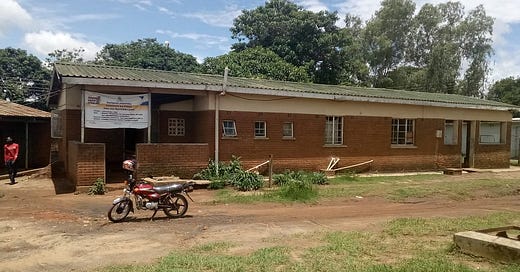Efforts to Disseminate Health Education, Curb STIs in Mpemba Show Positive Results
This is being done in an effort to improve the overall health of the community.
Malawi: In the rural health catchment area of Mpemba, located on the outskirts of the Blantyre district, efforts are being made to close the gap in the dissemination of health-related education in order to prevent the further spread of sexually transmitted infections (STIs), writes Thokozani Beaton.
This is being done in an effort to improve the overall health of the community.
"We conduct engagement meetings on health issues with communities. The idea is to provide them with necessary information on how they can prevent themselves from STIs and encourage those infected to seek treatment or counselling at the health facility," said Charles Saka, a health surveillance assistant (HSA) working at Mpemba Health Center in Blantyre.
Saka is a representative of the Blantyre Prevention Strategy (BPS) project in Blantyre District, which targets areas with high-risk HIV/AIDS populations and delivers interventions to ensure the epidemic is under control.
He says people are responding well to HIV testing messages, and there is a positive change in the number of defaulters on antiretroviral therapy among groups including teenagers.
The health team at the facility is guided by a modern method known as the Prevention Adaptive Learning and Management System (PALMS), which helps to get insights into cases such as defaulting on ART and making follow-ups in response to gaps.
The Blantyre Prevention Strategy representative said they design strategies like village health talks, among other efforts, to engage the masses.
For instance, he said they pay visits to places regarded as high-risk areas, but with consent, such as drinking joints, to provide patrons with counselling messages on Pre-Exposure Prophylaxis (PreP) to protect themselves from exposure to the virus that causes AIDS, and at the same time encourage them to go to health facilities to seek HIV testing and other prevention services.
Dorothy Mtuwana, a women's and girls' empowerment advocate and Chairperson for People Living with HIV (PLHIV) in Blantyre, said youth-friendly activities attract young people.
However, she thinks incorporating new innovations will enhance the desired results.
"I think there should be a way of equipping young people with entrepreneurial skills. This can attract the group into health education easily because some of the youths shun away voluntary meetings," said Dorothy.
According to the National HIV and AIDS 2022-2027 policy direction, a Malawi document, Chapter 2 on Broad Policy Directions, point number 8 on community participation and engagement policy states: "To ensure community ownership and empowerment, the policy will engage communities in HIV programming. It will capacitate communities in terms of knowledge, skills, resource management, and monitoring the delivery of HIV/AIDS services."



